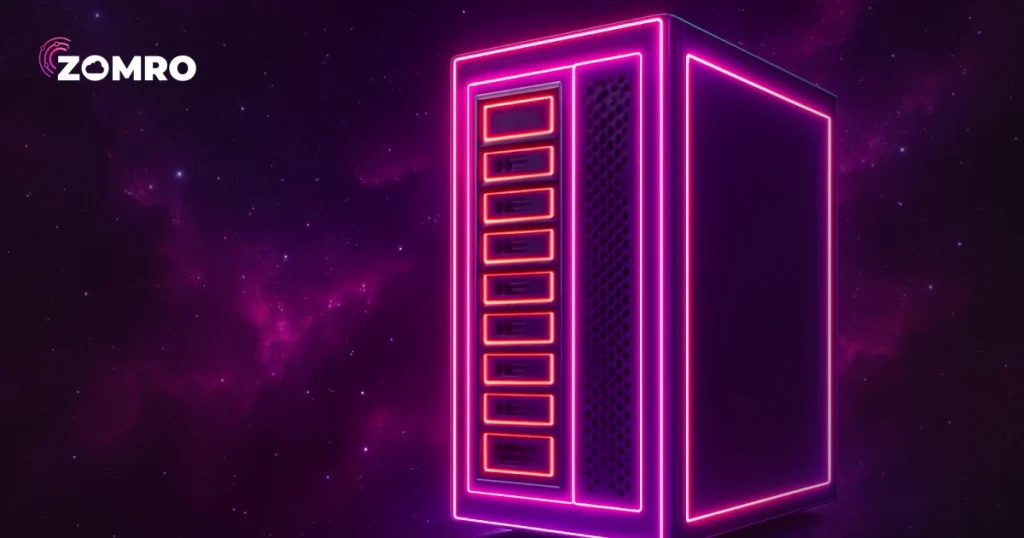Choosing the right web hosting is a crucial step when launching any online project. Hosting affects your website’s speed, availability, and security, so selecting the right provider is essential. In this article, we’ll discuss how to choose the best web hosting for your project, what factors to consider, and how to properly evaluate hosting platforms for a successful website or business launch.
1. Where to Start When Choosing Web Hosting?
Selecting hosting for your project depends on several important factors. First, you need to define your website’s requirements and the resources you’ll need. As Oleksii, a DevOps engineer at Zomro, explains:
“For small to medium-sized projects, a VPS with minimal resources—such as 2–3 GB of RAM and a basic CPU—is often sufficient. The choice between VPS and shared hosting usually depends on the need for resources and server control.”
It’s important to ensure the hosting can support fast site loading, high uptime, and scalability as needed.
2. VPS or Shared Hosting: Which One to Choose?
Before deciding which hosting is right for your project, it’s important to understand the difference between them.
Shared Hosting is a solution where your site is hosted on a server along with other users, sharing server resources. It’s a cost-effective option for small websites but limits flexibility and performance.
VPS Hosting (Virtual Private Server) gives you dedicated resources—CPU, RAM, and disk space. It’s a more powerful solution that offers stability and the ability to configure the server based on your needs.
Oleksii says:
“For small projects at the launch stage, VPS hosting is sufficient. It gives you more flexibility and control over resources, without the limitations on speed and performance that often come with shared hosting.”
If you plan to grow your project, it’s important to note that VPS hosting allows you to scale servers as your business expands.
3. What Resources Should You Plan for at the Start?
When choosing hosting for a new project, it’s important to properly assess the required resources. Here are a few key factors to consider:
- CPU: Determines how quickly requests are processed. A basic CPU is enough for small websites, but more interactive or large-scale projects need more powerful processors.
- RAM: More memory means faster server performance, especially under heavy loads. For standard websites, 2–4 GB of RAM is usually sufficient.
- Disk Space: SSDs are significantly faster than traditional HDDs, so choosing SSD hosting will boost your site’s performance.
Oleksii adds:
“We recommend starting with a VPS hosting plan offering 2–3 GB of RAM, which is enough for small projects. As your project grows, you can easily scale up the resources.”
4. Guaranteed Uptime: Why Is It Important?
Hosting uptime is the amount of time your site is available to users without interruption. Choosing hosting with high uptime ensures your business stays online and avoids losses due to downtime. Pay attention to the uptime guarantees offered by providers. Zomro offers 99.99% uptime, which is the standard for premium hosting platforms.
Oleksii explains:
“Guaranteed uptime is vital for any online business because every outage means lost potential customers. At Zomro, we guarantee a high uptime level to ensure your projects run smoothly.”
5. Importance of Technology Support
Hosting choice also depends on which technologies the platform supports. If your project requires specific programming languages or frameworks like PHP, Node.js, or Python, it’s important to choose a host that supports them.
Oleksii states:
“At Zomro, we support popular technologies like PHP, Node.js, and others, enabling our clients to build and scale their projects without limitations in tech choices.”
6. Technical Support: A Key Factor for Business
Technical support is another critical aspect when choosing hosting. Quality support isn’t just about response speed but also the professionalism of the team. At Zomro, we offer 24/7 support to help our clients resolve any issues promptly.
Oleksii notes:
“We’re always in touch with our clients and ready to help solve any technical problems. Reliable support is the foundation for uninterrupted site or business operation.”
Conclusion
Choosing the optimal hosting is a vital step for any project. Understand your needs, choose the right type of hosting (VPS, dedicated, or shared), pay attention to guaranteed uptime, SSD support, and don’t forget about technical support.
Sandra Larson is a writer with the personal blog at ElizabethanAuthor and an academic coach for students. Her main sphere of professional interest is the connection between AI and modern study techniques. Sandra believes that digital tools are a way to a better future in the education system.






